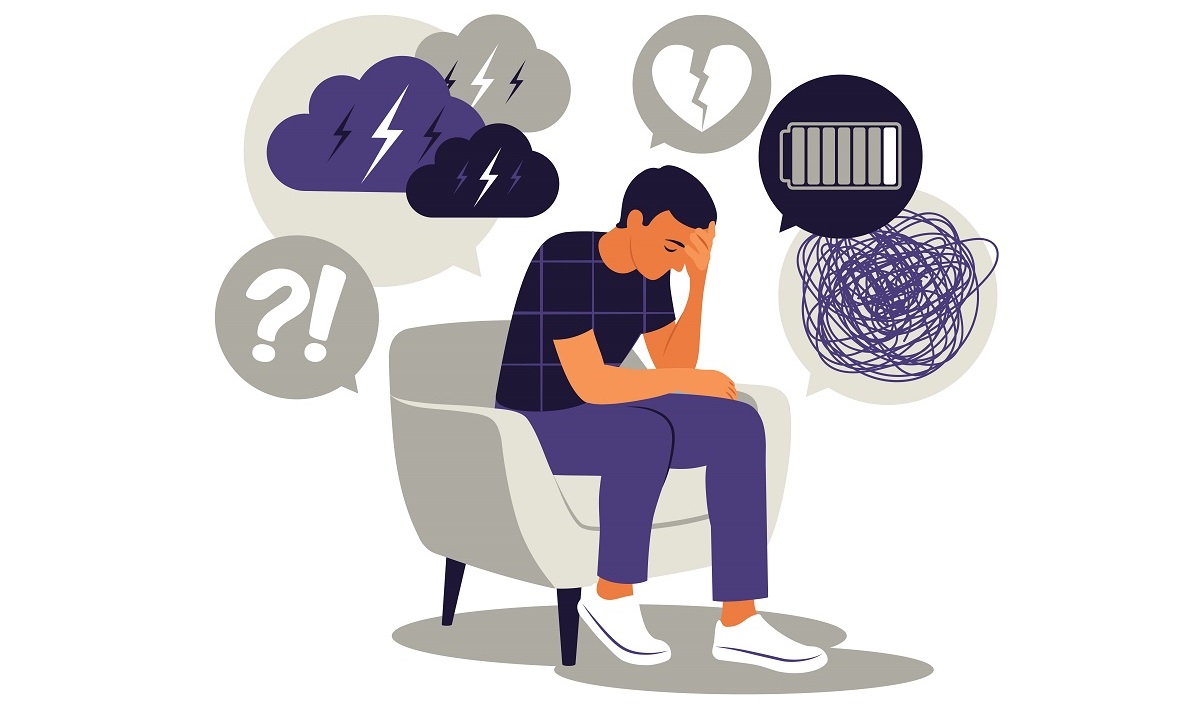What is depression? How it is different from sadness? How is the depression treated generally?
Depression is a mood disorder in which we feel sadness and loss of interest persistently for at least two weeks. We don’t enjoy doing things which normally we loved doing earlier. We may have trouble doing our normal day-to-day activities, and may also feel as if life isn't worth living. Having thoughts of committing suicide is a strong signal of onslaught of depression.
1. Feeling sad or having a low mood persistently for at least two weeks at a stretch;
2. Loss of interest in things which you loved doing earlier – for example, if you earlier enjoyed watching movies or chatting with friends but now you have stopped enjoying that at all;
3. Change of appetite – you have suddenly started eating too much or too little;
4. Sleeping too much or too little;
5. Loss of energy and feeling fatigued all the time – you get tired doing things which you could effortlessly do earlier;
6. Feeling worthless or guilty over petty matters;
7. Difficulty focusing or concentrating on things where it is expected;
8. Thoughts of death or suicide – most people under severe depression have thoughts of suicide right in the morning.
Please note that all the above symptoms need not be there but at least 3-4 of these should have been existing along with sadness for at least 15 days or so. Existence of suicide thoughts is generally strongly indicative of depression.
Now let me explain to you how sadness is different from depression:
1. We do get sad on the death of someone close or when a love relationship ends. But the feelings of sadness or grief are not continuous. We do become cheerful or have good feelings too for some moments when our attention gets diverted to something pleasant during this period. But a depressed person does not normally have any positive or good feelings even for short duration, and continues to be sad or low without break. However, grief and depression can co-exist too.
2. In grief or sadness, our self-esteem remains intact but when we are depressed, there is a loss of self-esteem and we have a feeling of worthlessness.
3. In depression, our thoughts are often focused on ending our life or committing suicide.
4. While one can come out of sadness or grief on his own, depression may require intervention of a psychiatrist or a psychologist or both, depending on its nature and severity.
General Treatment for Depression:
Treatment for depression will generally start with the interview and watching the demeanour of the person. In some cases, blood tests may also be advised as medical conditions like thyroid and vitamin deficiency can also create depression-like symptoms. After a person has been found to be actually under depression, he may be treated by a psychiatrist or psychologist or both, depending on the gravity of depression.
Psychiatrist will normally prescribe anti-depressant drugs according to the gravity of the case. The drugs may not show improvement within a week or two, and if so, the psychiatrist will change the anti-depressants. Psychiatrist usually recommend the patient to take these drugs for six months or more after symptoms have improved. It is best to go by the psychiatrist’s advice instead of indulging in self-medication which may have adverse consequences.
Psychotherapy or talk therapy by a psychologist can sometimes be used alone for treatment of mild depression. For moderate to severe cases of depression, psychotherapy is often used along with medical treatment by the psychiatrist for a lasting effect. Cognitive Behavioural Therapy (CBT) has been found to be effective in treating depression. It helps the depressed person is realizing that his negative or distorted thinking is responsible for his condition. This therapy aims at bringing that person to a positive thought process which helps in solving the problem of depression to a great extent. Depending on the severity of depression, 10 to 15 session may bring about considerable improvement in the patient.
Psychotherapy by a psychologist may involve not only the patient but his family too. Group therapy may be used for treatment of the whole family wherever needed.



